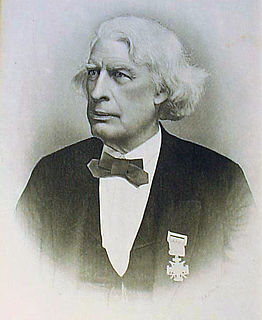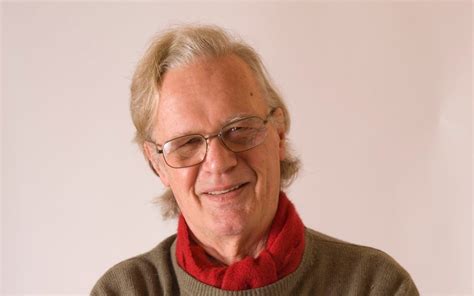A Quote by Bertrand Russell
One of the main causes of trouble in the world is dogmatic and fanatical belief in some doctrine for which there is no adequate evidence
Related Quotes
For a Man cannot believe a Miracle without relying upon Sense, nor Transubstantiation without renouncing it. So that never were any two things so ill coupled together as the Doctrine of Christianity and that of Transubstantiation, because they draw several ways, and are ready to strangle one another: For the main Evidence of the Christian Doctrine, which is Miracles, is resolved into the certainty of Sense, but this Evidence is clear and point blank against Transubstantiation.
It is my conviction that if any professional biologist will take adequate time to examine carefully the assumptions upon which the macro-evolution doctrine rests, and the observational and laboratory evidence that bears on the problem of origins, he/she will conclude that there are substantial reasons for doubting the truth of this doctrine. Moreover, I believe that a scientifically sound creationist view of origins is not only possible, but it is to be preferred over the evolutionary one.
Agnosticism is a perfectly respectable and tenable philosophical position; it is not dogmatic and makes no pronouncements about the ultimate truths of the universe. It remains open to evidence and persuasion; lacking faith, it nevertheless does not deride faith. Atheism, on the other hand, is as unyielding and dogmatic about religious belief as true believers are about heathens. It tries to use reason to demolish a structure that is not built upon reason.
The Cabal is of two kinds, theoretical and practical, with the practical Cabala, which is engaged in the construction of talismans and amulets, we have nothing to do. The theoretical is divided into the lineal and dogmatic. The dogmatic is nothing more than the summary of the metaphysical doctrine taught by the Cabalist doctors. It is, in other words, the system of the Jewish philosophy.
Death makes me realize how deeply I have internalized the agnosticism I preach in all my books. I consider dogmatic belief and dogmatic denial very childish forms of conceit in a world of infinitely whirling complexity. None of us can see enough from one corner of space-time to know "all" about the rest of space-time.
Sometimes people hold a core belief that is very strong. When they are presented with evidence that works against that belief, the new evidence cannot be accepted. It would create a feeling that is extremely uncomfortable, called cognitive dissonance. And because it is so important to protect the core belief, they will rationalize, ignore and even deny anything that doesn't fit in with the core belief.
A delusion that encourages belief where there is no evidence is asking for trouble. Disagreements between incompatible beliefs cannot be settled by reasoned argument because reasoned argument is drummed out of those trained in religion from the cradle. Instead, disagreements are settled by other means which, in extreme cases, inevitably become violent. Scientists disagree among themselves but they never fight over their disagreements. They argue about evidence or go out and seek new evidence. Much the same is true of philosophers, historians and literary critics.
One area of the Book of Mormon that does bother some is what they see as anachronistic doctrine; that the Book of Mormon has Christian doctrine prior to the coming of Christ; that it has seemingly New Testament doctrines appearing centuries before Jesus arrives, and it seems to be representing a form of Christianity existing in the New World where there doesn't seem to be much evidence of that archaeologically. Christianity is invisible in the New World prior to the coming of Columbus, and so those things seem like clear anachronisms to people looking at it in that way.
In some places, there's the concept of one religion, one truth. In the Muslim world, there's the notion of Allah. The Western, multireligious modern society is some kind of a challenge to this. These, I feel, are the main causes [for terrorism], and, when combined with lots of anger and frustration, cause a huge amount of hate.
Jesus no doubt fits his teaching into the late-Jewish messianic dogma. But he does not think dogmatically. He formulates no doctrine. He is far from judging any man's belief by reference to any standard of dogmatic correctness. Nowhere does he demand of his hearers that they shall sacrifice thinking to believing.


































